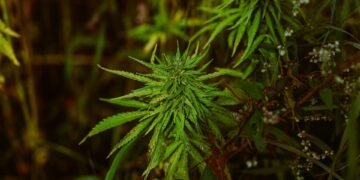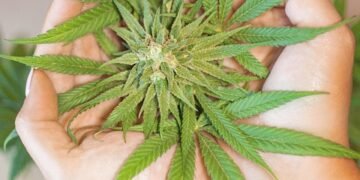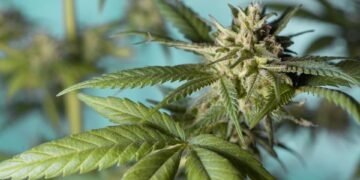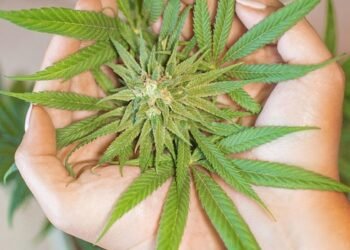The Green Revolution: Navigating the Complexities of Hemp Farming Regulations
With the growing popularity of hemp products and the legalization of hemp cultivation in many states, the hemp industry is experiencing a rapid expansion. However, navigating the complex web of hemp farming regulations can be a daunting task for farmers looking to capitalize on this booming industry. In this article, we will explore the key regulations that govern hemp farming and provide valuable insights on how to successfully navigate this regulatory landscape.
Understanding Hemp Farming Regulations
Before diving into the specifics of hemp farming regulations, it is important to understand the legal framework that governs the cultivation of hemp. In 2018, the Agricultural Improvement Act, also known as the Farm Bill, removed hemp from the list of controlled substances, effectively legalizing the cultivation of hemp in the United States. However, this legislation also imposed strict regulations on hemp farming to ensure compliance with federal and state laws.
Federal Regulations
At the federal level, the U.S. Department of Agriculture (USDA) is responsible for overseeing hemp cultivation and enforcing regulations to ensure compliance with the Farm Bill. One of the key requirements for hemp farmers is obtaining a license from the USDA to legally grow hemp. In addition, farmers must adhere to strict guidelines regarding THC levels in hemp plants, as THC is the psychoactive compound found in cannabis plants.
State Regulations
In addition to federal regulations, each state has its own set of regulations governing hemp cultivation. These regulations may vary widely from state to state, so it is important for farmers to familiarize themselves with the specific requirements in their state. Some states may require farmers to obtain a separate license to grow hemp, while others may have specific guidelines for testing THC levels in hemp plants.
Key Considerations for Hemp Farmers
As a hemp farmer, there are several key considerations to keep in mind when navigating the complexities of hemp farming regulations. One of the most important considerations is ensuring compliance with THC level requirements. Hemp plants must contain less than 0.3% THC to be considered legal, so farmers must carefully monitor THC levels in their crops to avoid potential legal issues.
Another important consideration is obtaining the necessary licenses and permits to legally grow hemp. Each state has its own licensing requirements, so farmers must ensure they have the proper documentation before planting their crops. Failure to obtain the necessary licenses can result in fines or other penalties, so it is crucial to follow the proper procedures.
Testing and Compliance
Testing is an essential part of hemp farming, as it allows farmers to monitor THC levels in their crops and ensure compliance with federal and state regulations. Farmers must work with accredited testing laboratories to accurately measure THC levels in their plants. In addition, farmers may be required to keep detailed records of their testing results to demonstrate compliance with regulations.
Market Access and Distribution
Once hemp crops are harvested, farmers must consider how they will market and distribute their products. The hemp industry is highly competitive, so farmers must develop a solid marketing strategy to reach their target audience. This may involve partnering with retailers, distributors, or other industry stakeholders to ensure their products reach consumers effectively.
Common Questions About Hemp Farming Regulations
What are the key regulations governing hemp farming?
The key regulations governing hemp farming include obtaining a license from the USDA, testing THC levels in hemp plants, and complying with state-specific regulations. Farmers must also ensure they have the necessary permits and licenses to legally grow hemp.
How can farmers ensure compliance with THC level requirements?
To ensure compliance with THC level requirements, farmers must work with accredited testing laboratories to accurately measure THC levels in their crops. Farmers should also keep detailed records of their testing results to demonstrate compliance with regulations.
What are the challenges of navigating hemp farming regulations?
One of the biggest challenges of navigating hemp farming regulations is the lack of uniformity across states. Each state has its own set of regulations governing hemp cultivation, which can make it difficult for farmers to stay informed and compliant. Additionally, the evolving nature of hemp regulations can pose challenges for farmers as laws and guidelines may change frequently.
Conclusion
As the hemp industry continues to grow, navigating the complexities of hemp farming regulations is essential for farmers looking to capitalize on this booming market. By understanding federal and state regulations, testing and compliance requirements, and key considerations for hemp farmers, farmers can successfully navigate the regulatory landscape and position themselves for success in the hemp industry.
Remember, compliance is key in the hemp industry, so farmers must stay informed and up-to-date on the latest regulations to ensure they are operating legally and ethically. By following the guidelines outlined in this article, farmers can navigate the complexities of hemp farming regulations with confidence and set themselves up for success in this burgeoning industry.




















![The Mind-Blowing Effects of [Cannabis Strain]](https://cannabisdailyguide.com/wp-content/uploads/2025/10/tree-4138799_960_720-360x180.jpg)


















































